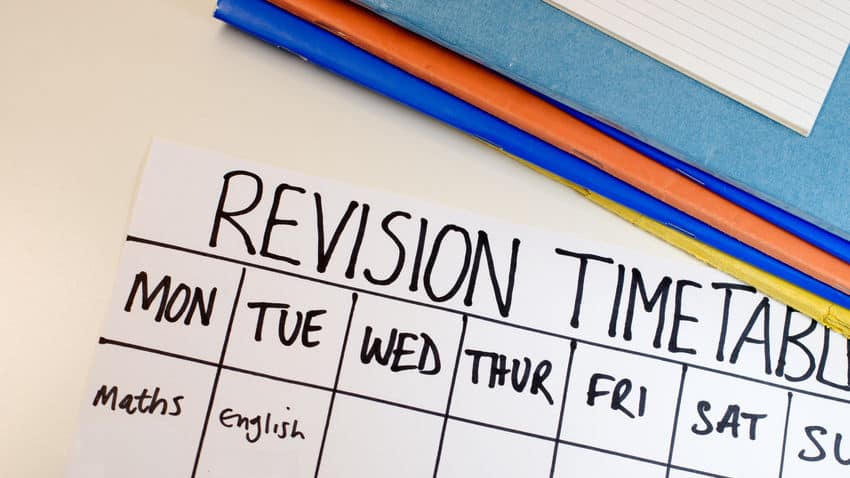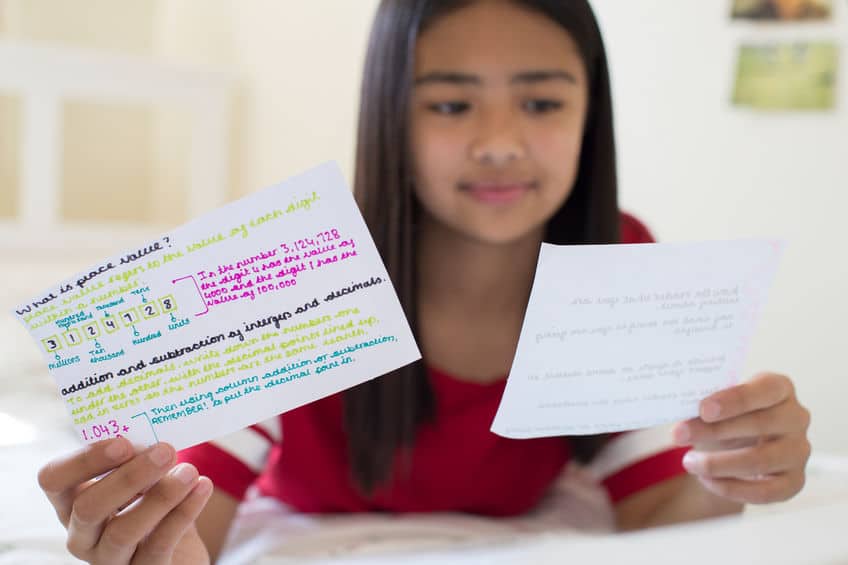Revision Strategies & Techniques That Educators Swear By
Submitted by KiasuEditor
It’s the least favourite time of the year for many primary schoolers in Singapore, and perhaps their parents too.
How do you deal with resistance to exam revision, and are there any revision strategies that will lead to surefire results? Read on to find out what educators think!
Resistance To Revision
What if a child is procrastinating on starting revision, or simply refusing to pick up his or her books?
One question that you can ask, says enrichment school educator Diana Petrov, is: “On a scale of 1 to 10, ‘1’ being ‘not ready to start revision’ and ‘10’ being ‘ready to start anytime,’ where do you think you are right now?”

No matter what number your child comes up with, these are some follow-up questions you could ask:
- “I wonder what would be one small thing you could do to move up the scale?”
- “Is there anything I can do to help you move up the scale and feel more ready?”
- What is one small step that would be easy to start your exam prep with? Let’s write it down.”
- “Let’s make a list of revision tasks, and add one easy step every day.”
- “What would be a good day to start your exam prep? Let’s mark the calendar.”
- “When I’m busy or not home, how will you remind yourself to do your revision?”
- “How are your friends doing their revision? Is there anything that you can apply too?”
- “What works for you? Let’s do more of that!”
As parents, your main role is not to play substitute teacher, but to highlight and praise any positive efforts that your child might already have made, and to give them the space to express their emotions — even negative ones — about studying. Perceptions and habits can’t be changed overnight, so practise patience, and give your child the time and space to improve. (Read more tips about overcoming resistance to studying here.)
Revision Must-Dos
If you’re thinking that your child should be clocking a prerequisite number of revision hours in order to make the grade, think again.
“There is no magic number [for revision] as this would vary from student to student,” says seasoned Math teacher Phua Kai Ying. “I would prefer to determine that based on the student’s level of preparedness, while taking into account his or her stress level.”
Looking at your child’s schedule, which encompasses time spent at school and co-curricular activities, as well as enrichment classes, and factoring in mealtimes as well as break times, and getting ample sleep, how much time is there left for revision? Even if it’s just one or two hours a day, don’t fret, but instead, make revision time count.

Although there isn’t a magic formula for studying, there are certainly some tried-and-tested methods that have proven effective.
For instance, Phua says that working on practice papers and quizzes “is one of the most effective ways to revise,” because students are actively required to retrieve knowledge from their memory banks, rather than passively reading through their notes. Also, it helps students to identify what they do — and do not — know, and mentally prepares them for the requirements of the exam. Tedious as they may be, your child’s revision routine should definitely include practice papers.
Apart from practice papers, one should always review past mistakes, and the most effective way of doing so is for your child to redo the questions that they have not been able to answer correctly before. Again, this is because redoing the question is an active process that tests your child’s understanding, whereas reading a model answer is a passive process that may not aid retention.
If your child needs to memorise notes, say for Science, bear in mind that students are thought to learn best during the first 10 minutes of a study session when their minds are fresh, and in the final 10 minutes of a session, where the realisation that the end is near can bring on a surge of energy. To maximise learning and retention, you can use a timer to help your child track his or her study sessions. Allocate 25 minutes to reading, five minutes for a verbal quiz to make sure your child has understood and remembered essential content, and five to 10 minutes for a break thereafter. (Read more effective study strategies here.)
As for other more subtle strategies that may increase your child’s chances of doing well in the exams, you could use a study cue to help your child to focus. This could range from having your child study in the same place each time, turning on a study lamp, or putting on a non-intrusive (e.g. instrumental) playlist to signal to them on a subconscious level that it is time to put away all distractions and focus on the task at hand.
A study has also shown that setting goals could give you a 62% chance of fulfilling your goals, while giving a weekly progress report to a third party could increase one’s likelihood of success to 76%. Note that self-awareness is crucial to goal setting — children should know why achieving their goal is important, and understand exactly what they need to do to meet their targets. (Read about goal setting here.)
And finally, ensure that your children are getting sufficient sleep leading up to the exams — at least one study has shown that children who get better sleep perform better on math and language-related tests.
Need to check on your child’s progress before the exams? Bookmark this list of 20 exam-readiness questions you can ask your child!